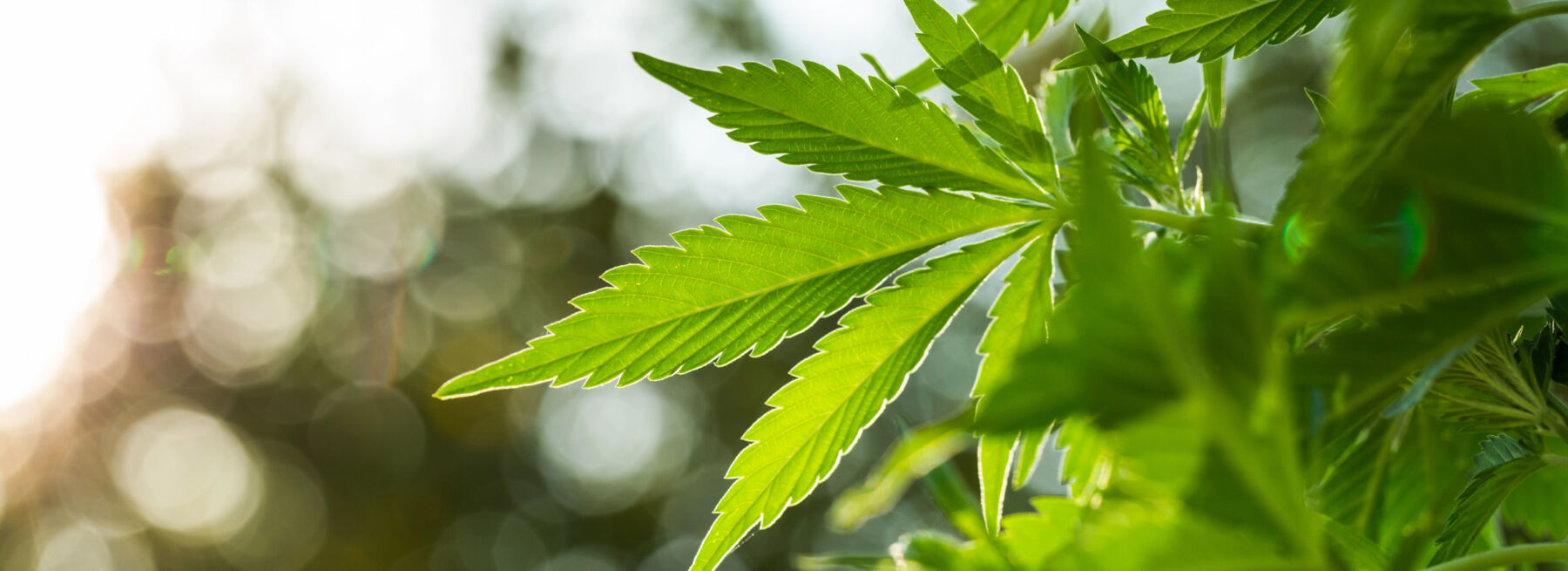The good news is the cannabis industry is smoking hot. The industry’s sales will reach $32 billion and pump $112 billion — a 12% increase —into the U.S. economy in 2024 according to MJBiz. For every $1 customers pay, the industry contributes $2.50 to the economy. Moreover, the data estimates there are 420,000 full-time employees in the cannabis industry.
As the marijuana industry continues to grow, the complexities surrounding its security and compliance frameworks must be top of mind. Each stage of the cannabis operation, from cultivation to sale, is tightly regulated to ensure safety and compliance with legal standards. This oversight is crucial for the protection of the product and for maintaining consumer safety and public trust.
Security measures in the cannabis industry go beyond the basics of business security. They encompass a range of strategies from advanced technological solutions to rigorous personnel training. The purpose of these practices is to mitigate risks such as theft, diversion, and unauthorized access.
The risks are high given the value of the product. Compliance is about more than following laws. Compliance is about understanding the fluid landscape of regulations that vary from one state to another as well as at the federal level.
The intertwining of security and compliance creates a unique challenge for cannabis businesses. They must constantly stay informed and agile, adapting to new laws and evolving threats. This dynamic makes the role of security and compliance operational necessities and vital components that shape the industry’s future.
Cannabis Industry Security Challenges
To say the least, the cannabis industry faces unique security challenges due to its high-value nature and the complex legal environment. Given the intrinsic value of the product and its by-products, it’s no surprise that thieves go after cannabis businesses. This risk extends across the entire supply chain, from farms and production facilities to dispensaries and transport routes. Implementing robust physical security measures is essential but often pricey.
Another significant challenge is cyber security. As the industry expands, so does its reliance on technology for operations management, sales tracking, and compliance reporting. This digital footprint makes cannabis businesses vulnerable to cyberattacks that could compromise sensitive customer data, financial information, or proprietary growing conditions. Therefore, cyber defenses are as important as physical defenses in protecting digital assets.
Of course, everyone knows the cannabis industry is a cash-heavy business. This is due to marijuana being illegal on the federal level. As such, federal banks cannot serve cannabis-related businesses. Criminals know this and that’s why marijuana companies are at a high risk for theft. As a result, the cannabis industry has a lot of detailed regulations they must follow regarding security and employee safety.
Regulatory compliance adds another layer of complexity to the security landscape. Cannabis laws vary between jurisdictions and change frequently. Lawmakers don’t know how a change in the law will affect the cannabis industry until after it goes into effect. Therefore, they change the laws based on the results.
To complicate matters, law enforcement must keep track of these constantly changing laws on top of other laws not related to the industry. Additionally, policing priorities have changed in recent years. Law enforcement may not prioritize policing cannabis businesses. Thus, it’s essential for cannabis businesses to implement professional, commercial-grade security that complies with regulations and protects their high-value assets.
All businesses in the cannabis industry must stay on top of current regulations to avoid legal penalties, which can include fines or losing a license. Compliance requires understanding the laws and implementing processes that ensure all operations — from growing and processing to selling and reporting — fall within legal parameters.
Every geographical location has its own requirements, so the regulation that applies is dependent upon the location of the business. For Canadian-based businesses, the rules vary by province. For businesses in the U.S., the laws vary based on state and municipality. Some examples of the variations include the number of days the dispensary must retain video footage, securing parts of the business outside of the property, and providing the Chief of Police or an assigned counterpart with remote access to the video cameras.
Unlike many industries, the cannabis industry has a unique problem with product diversion. Crooks from states where cannabis isn’t legal will do what they can to divert the product into the illegal market. Regulatory compliance and industry integrity demand cannabis businesses to prevent diversion from happening.
All these challenges require strict tracking and documentation processes. These tend to be mandated by state seed-to-sale tracking systems to help verify that every gram of product is accounted for. They also require significant data management and can be a point of vulnerability if not properly secured.
Due to being a cash-intensive business with a high-value product, the risk of internal threats is also high. Employees are tempted to swipe a dollar here and a dollar there. Owners and managers must walk a fine line between maintaining a positive workplace culture and an invasive one that requires background checks and continuous surveillance.
Security’s Role in Protecting Cannabis Industry Businesses
In addition to the ever-changing cannabis regulations, cannabis businesses deal with the stringent requirements for retaining their licenses. Being successful involves implementing cybersecurity and physical security that includes a security plan, training, video surveillance systems with high-resolution cameras, monitoring, secure storage, stringent access control management, and reinforced vaults.
Here’s a detailed review of security that can help bolster cannabis compliance, cut risk, and protect employees, customers, and assets.
1. Create and maintain a cannabis security plan
All cannabis-related businesses — including cultivators, processors, manufacturers, transporters, and dispensaries — need to create a cannabis security plan that contains procedures and guidelines. In documenting the cannabis security plan, work with an experienced lawyer who knows the current laws at the federal, province, state, and municipality levels related to cannabis compliance. Not following these laws can cause a cannabis business to evaporate in smoke.
The security plan is not a document you create and forget about. Ensuring compliance demands keeping the security plan updated and referencing it often. At a minimum, review and update the plan at least once every year. While not related to security, it’s essential to have a hazard communication plan, fire prevention plan, and documentation on the use of personal protective equipment. These could be incorporated into the employee training.
2. Train employees
All employees — new and experienced — must undergo training at least once a year. This training covers current security best practices as well as how to recognize and handle threats. They will also need to learn how to properly manage inventory, handle cash, and maintain the integrity of the vulnerable supply chain.
Security training can be combined with safety training. Employees need training in handling hazardous materials, fire prevention, and proper personal protective equipment use.
3. Do random audits
Conducting random audits is vital to check for employees and process complacency. It’s better that the manager finds problems than for an auditor to find them. Better yet, bring in a cannabis security consultant who can create a process for random audits or do the auditing. It’s a small price to pay compared to penalties and losing a license.
4. Add an access control system
The inventory and vault need to be in limited-access areas. An access control system helps simplify the management of who can enter the limited-access areas. It’s easy to add and remove access. An access control system can be cloud-based. This means the manager can control access from any connected device. Besides, some laws require there be an access control system in the cannabis business.
Integrated security systems, such as video surveillance, remote monitoring, and an access control system can bolster security. Integrating security makes it possible to monitor activities in real time and determine when someone enters a limited-access room.
5. Implement video surveillance with remote monitoring
Most regulations in the U.S. and Canada require security cameras with video monitoring. The regulations are different in terms of camera placement locations, video resolution, and more. That’s why cannabis companies need to work with a partner who has experience in cannabis industry security.
Working with an experienced security vendor brings many benefits. One is the assurance the business is following regulations. Finding a security vendor with knowledge of cannabis laws related to security is a top priority. When you bring in the wrong vendor, there could be a high price to pay.
6. Invest in cybersecurity
The inventory management or point-of-sale systems help employees keep inventory databases current and accurate. These can be hacked, which is why cybersecurity is vital. The system has sensitive data such as customer and patient information, financial information, and online transactions. Better yet, combine cyber and physical security to avoid having any security gaps.
Applying these six strategies goes a long way in creating a culture of compliance, safety, and security from seed to sale. It’s also important to avoid becoming complacent. The security plan and yearly training will help prevent complacency.
Search for a Security Company with Cannabis Industry Expertise
Now that you have a path to help you with compliance and security, the next move is to look for cannabis industry security professionals. Here’s a free cannabis security guide to get you started as it gives an overview of cannabis security in the U.S. and Canada. It will paint a picture of a comprehensive security solution that supports a cannabis business. To learn more, contact us.
Texas Private Security License Number: B14187
California Alarm Operator License Number: ACO7876
Florida Alarm System Contractor I License Number: EF20001598
Tennessee Alarm Contracting Company License Number: 2294
Virginia Private Security Services Business License Number: 11-19499
Alabama Electronic Security License # 002116
Canada TSBC License: LEL0200704

